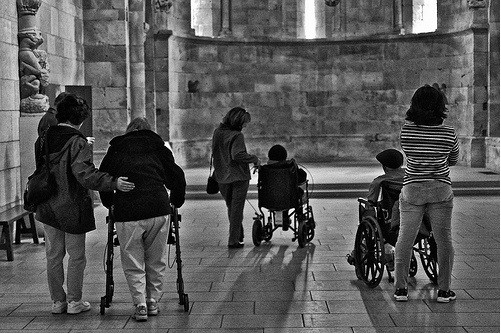
Life is a journey filled with different kinds of memories that help build a colourful world around us. There wouldn't be anything worse in the world than losing one's memory.
Hence from the past 19 years, 21 September is being observed as World Alzheimer's Day.
Alzheimer's disease is a brain disease that leads to the destruction of memory and other important functions of the brain, including thinking, communication and behaviour. According to Fisher Center for Alzheimer's Research Foundation in the US, someone in the world develops the disease in every 68 seconds.
The disease has been named in honour of a German psychiatrist and neuropathologist Alois Alzheimer who successfully identified and narrated the clinical symptoms of the disease in 1906.
Alzheimer's disease is one of the most common causes of dementia, a syndrome related to the brain that leads to memory loss, difficulty in communicating, thinking, understanding, judgment, planning and the ability to perform daily routines. According to the World Health Organization, nearly 35.6 million people around the world are affected with dementia and nearly 7.7 million new cases are reported every year.
Alzheimer's disease is common among the elderly. It affects the memory of people above 65 years of age, following which the protein plaques and tangles are formed in the brain, which damage plus kill brain cells.
Starting with small episodes of confusion and forgetfulness, the disease progresses to a stage where the patient is hardly able to recall recent memories and loses even the basic motor skills.
Report shows that prevalence of both Alzheimer's disease and dementia is comparatively low in India compared to the developed countries.
Studies have surprisingly shown that many factors, including excessive cleanliness and lack of exposure to different kinds of bacteria, viruses and other micro-organisms that help the body to build a strong immune system, increase the risk of developing a brain disorder.
Some other factors that contribute to its occurrence are - aging, going through head trauma, family history of the disease, genetic mutations, unhealthy lifestyle including smoking, poor diet and lack of enough exercise.
As there are no specific tests to identify Alzheimer's disease, doctors diagnose it through symptoms and testing thyroid disorder, vitamin deficiency, brain imaging and neuropsychological factors.
Following are some symptoms associated with the progressive disease that does not have any cure.
SYMPTOMS
- Constant change in mood
- Depression
- Losing trust in people
- Exhibit aggressiveness
- Social withdrawal
- Experience delusions
- Tendency to wander off
- Altered sleeping habits
- Damaged self-consciousness
Some Foods that Protect against Alzhemier's Disease
- Wine
- Leafy Greens rich with folate and B9
- Foods Rich in Flavonoids- berries, nuts, beans, green, red vegetables
- Turmeric Powder - A component in turmeric powder called curcumin has antioxidant, anti-inflammatory and anti-microbial properties
- Food rich in Omega 3 Fatty Acids- Omega-3 fatty acids are crucial for brain development. Fish oils, squid oil, algal oil and plant oils (echium and flaxseed oil) are some sources rich in omega 3 fatty acids
- Foods rich in zinc, choline, vitamin E, vitamin B6, magnesium, vitamin A, iron, vitamin C
Some Apps for Alzheimer's Patients
- Clevermind app for the iPad- helps boost brain with memory exercises, individual entertainment and social networking
- iTunes Preview -Alzheimer's apps
- Brain Exercise with Dr. Kawashima
- Improve your memory
- A mobility app for Alzheimer's sufferers
- Real Time GPS Tracking Device for finding Alzheimer Patients
Products particularly designed for Alzheimer's Patients
- Automatic Medication Dispenser - It dials emergency numbers when the patient will skip medication
- Picture memory phone- It enables to dial a person by merely pressing on his/her picture
- Day/Night Clock- It includes text graphics (Day, Morning, Night, Evening and Night) with pictures of sun and moon to help patients identify time easily.
- Patient Monitor with Remote Voice Alert - alerts the caregiver of wandering
- Book "The Complete Guideto Alzheimer's Proofing Your Home" that gives expert advice for taking care of a person affected with the disease

















